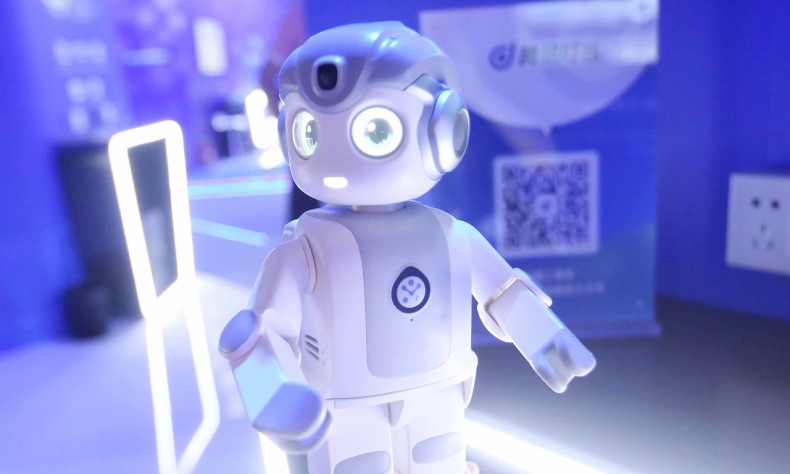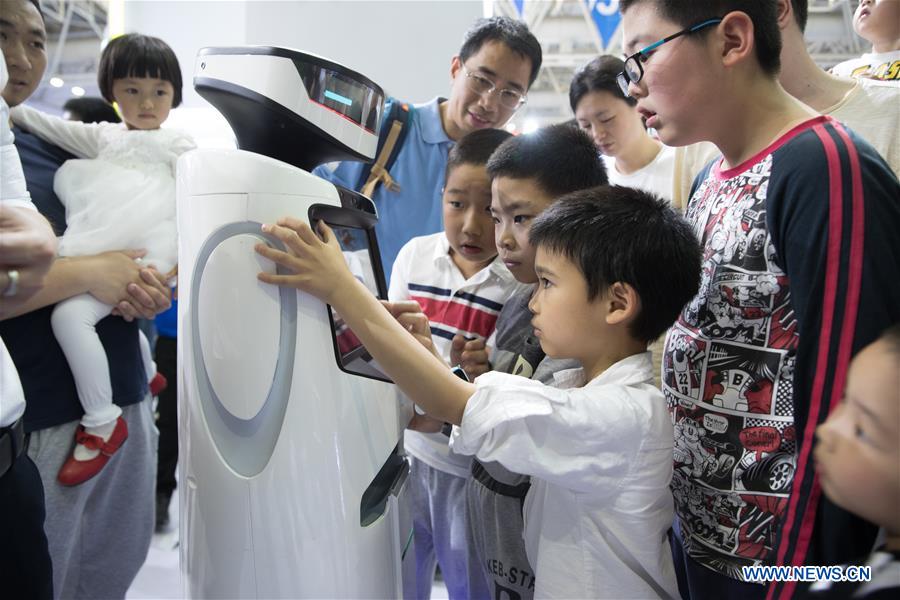
Artificial Intelligence and the Future of Humans
Today’s world is significantly different from the one in which humans lived in for the last 200 thousand years.
With the rapid development of artificial intelligence (AI), mankind might lose its intellectual superiority, which is the main advantage we have as a species.
Why Might Mankind Lose its Intellectual Superiority?
There are several reasons why this could become an eventuality.
First, the software that forms the basis of AI is a mathematical code based on certain algorithms, the author of which is still a human. However, in the near future, AI will be able to independently change existing codes and even create new ones. This development is already in its nascent stages as part of the so-called Industry 4.0 and the Internet of Things (IoT). Such technologies allow physical objects to interact with each other, eliminating the need for human participation. Thanks to certain algorithms and neural-like computing structures, and the use of big data and the Internet, modern computers already have predictive and self-learning functions.

Secondly, unlike humans, AI is not limited to biological matter. It requires a long period of time for biological matter to naturally undergo development or modification. As a mathematical code, AI has the potential to change or develop exponentially in a much shorter time compared to natural evolution. Also, while the process of transferring information and knowledge from person to person is extremely limited and could take years, AI will be able to transfer information in a matter of seconds. Moreover, updating the AI model does not mean the loss of information and knowledge, which occurs in the case of a person’s death. Thus, the development of skills, professions, and any other physical, informational and intellectual activities can occur at lightning speed with AI.
Thirdly, in contrast to a biological organism, such as man, AI does not have to be tied to a biological body, and therefore can exist not only outside of it, but also in other physical conditions and dimensions unknown to us. In fact, all life-supporting resources necessary for a human such as water, food, air, light, sleep, movement, and so on, are not critical factors for the existence and efficiency of AI. This in turn means that in an efficiency and profit-oriented society, AI has many more economic advantages.
Vector of New Development
The creation of the “real” AI will mean that a human armed solely with its brain and body will not be able to compete with AI in the future. Humans will objectively lose the ability to control AI, and, as is commonly believed in the biological world, they will become less competitive and lose their intellectual primacy on earth. In order to prevent such a scenario, we will have to find synergies between human abilities and technical innovation, which will be the beginning of a merger of sorts to restore the balance of power between humans and AI. In my opinion, this option is the most feasible, since it has already been successfully launched!
Scientific research is making progress in this area, and projects involving nanorobots will soon be implemented. Projects are also in the works to recreate living matter – from cell cloning and integrating chips into the human body, up to printing entire living organs on a 3D printer. It is likely that these efforts will be supported by genetic engineering, which will become essential, since there is insufficient time for humans to increase their potential through a natural evolutionary process. This in turn will set a precedent for the emergence of a different form of cyborgs – a cybernetic human, which will lead to the increased blurring of boundaries between humans, computers and robots. Following this development, it can be assumed that with technical progress, the natural parts of the human body will be replaced by more practical, artificially created ones. This will sooner or later lead to the question of who can still be considered human or robot. 
Merging humans with smart technologies will first of all be implemented in the field of medicine. Even today, we are already able to integrate auxiliary materials and sensors into the human body to maintain or enhance the natural physiological parameters of living tissue. Those sectors in which the improvement of physiological and intellectual indicators will mean a strategic advantage over competitors will also follow suit. Hence, such cybernetic improvements will soon spread to the military and rescue departments, as well as manufacturing and research centers. In turn, these sectors will provide huge funds for further development and implementation of AI projects worldwide.
Considering all of the above, I believe that in just a few decades, a new type of non-biological intelligence will appear. This will likely be created in China and in the USA as both superpowers have the scientific talent and necessary funding to run expensive research and development programs.
A Long Evolutionary Process in the Future
Today’s world is significantly different from the one in which humans lived in for the last 200 thousand years.
Scientific research, as well as technical developments of the last 300 years, have shown that the future of mankind will not be anything like its past, and humans will be forced to adapt quickly.
However, such changes are unlikely to be achieved in a natural way as it requires a long evolutionary process. It seems that humans will make great efforts to accelerate its development, and therefore will have to merge with AI to survive.
Dr. Konstantin Schamber is an international entrepreneur, expert in intercultural communication and artificial intelligence from the social sciences point of view. He is the Managing Director of the Center for Strategic Intercultural Communication GmbH in Germany and the Founder of the Business Innovation Congress in Asia.
Opinion articles reflect the views of their authors only, not necessarily those of China Focus
Source: China.org.cn
 Facebook
Facebook
 Twitter
Twitter
 Linkedin
Linkedin
 Google +
Google +










